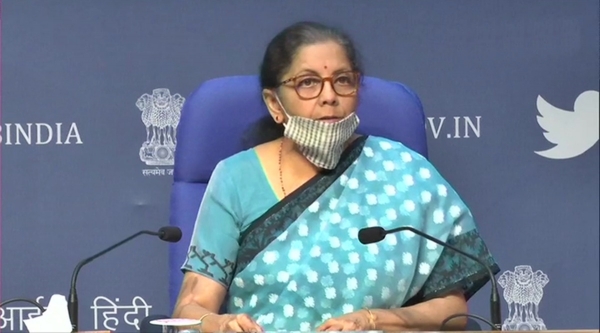India seen spending more on economy after extending lockdown
Here's what equity analysts and economists say about the Indian stimulus: Mahesh Nandurkar and Abhinav Sinha, equity analysts at Jefferies Financial Group In
- by B2B Desk 2020-05-19 10:38:25
Equity strategists and economists expect the Indian government to have to spend more to revive the economy, as the steps so far are not sufficient with investors shifting toward worsening macro indicators.
The Indian government extended its nationwide lockdown until May 31, while further relaxing restrictions in certain areas to boost economic activity, with an increased coronavirus case across the country.
The $ 265 billion virus rescue package is equivalent to 10% of India's GDP, but some economists estimate that additional government spending is only 1% of GDP. In all regions of the country, Infections are increasing from 1.3 billion people, with more than 95,698 infections, including 3,025 deaths, according to data from Johns Hopkins University.

Equity futures on India’s NSE Nifty 50 index traded in Singapore fell 0.2% on Monday, indicating that local stocks could extend the declines after recording two straight weeks of losses.
Here's what equity analysts and economists say about the Indian stimulus:
Mahesh Nandurkar and Abhinav Sinha, equity analysts at Jefferies Financial Group Inc.:
The net financial impact of the economic package is estimated at around 1% of GDP. The overall fiscal deficit is estimated at 10.5-11% of GDP for the year 21. "
"The key excitement will be how the current crisis enables structural positives, emphasizing the ease of doing business, e-Governance, labor & power distribution reforms, and an increased focus on privatisation."
"With fiscal news behind us, the focus should return to profits and economic indicators."
Kaushik Das, Chief Economist of India at Deutsche Bank AG:
"1% of GDP with additional spending is not enough to support the continued destruction of domestic demand, and more direct financial support will be needed throughout the year to support growth."
"We expect 0.8 to 1.0% of GDP to be announced in additional spending during the year."
"Recapitalisation of banks in the public sector may be necessary, in our opinion, as NPA’s rise increases in the near future, which could increase the future fiscal deficit and public debt.”
Kapil Gupta, an economist at Edelweiss Financial Services Ltd.:
“The package is underwhelming on ‘here and now’ demand stimulus.”
"A more rigorous and timely demand-side response is essential, fully supported by RBI’s rate cuts/OMOs. Given the weak conditions of demand, we believe that financial activity will serve the cause of growth and jobs, price stability, and macroeconomic stability better than financial conservatism. "
Source: TheEconomicTimes
Also Read: Moderna says Covid-19 vaccine shows promise in early trials, excites markets
POPULAR POSTS
Loan EMIs to Drop as RBI Slashes Repo Rate - Full MPC December 2025 Highlights
by Shan, 2025-12-05 11:49:44
Zoho Mail vs Gmail (2025): Which Email Platform Is Best for Businesses, Startups, and Students?
by Shan, 2025-10-09 12:17:26
PM Modi Launches GST Bachat Utsav: Lower Taxes, More Savings for Every Indian Household
by Shan, 2025-09-24 12:20:59
$100K H-1B Visa Fee Explained: Trump’s New Rule, Clarifications & Impact on Indian Tech Workers
by Shan, 2025-09-22 10:11:03
India-US Trade Deal Soon? Chief US Negotiator Arrives in Delhi as Talks Set to Begin Tomorrow
by Shan, 2025-09-15 11:54:28
Modi Meets Xi: Trump’s Tariffs, Strategic Autonomy, and the Future of Asia’s Power Balance
by Shan, 2025-09-03 06:40:06
Google Claims Gemini AI Uses Just ‘Five Drops of Water’ Per Prompt, Sparks Debate
by Shan, 2025-08-22 12:34:27
RECENTLY PUBLISHED

Pine Labs IPO 2025: Listing Date, Grey Market Premium, and Expert Outlook
- by Shan, 2025-11-05 09:57:07

The Agentic Revolution: Why Salesforce Is Betting Its Future on AI Agents
- by Shan, 2025-11-05 10:29:23

Top 10 Insurance Companies in India 2026: Life, Health, and General Insurance Leaders Explained
- by Shan, 2025-10-30 10:06:42

OpenAI Offers ChatGPT Go Free in India: What’s Behind This Big AI Giveaway?
- by Shan, 2025-10-28 12:19:11

Best Silver Investment Platforms for 2025: From CFDs to Digital Vaults Explained
- by Shan, 2025-10-23 12:22:46





 Subscribe now
Subscribe now 